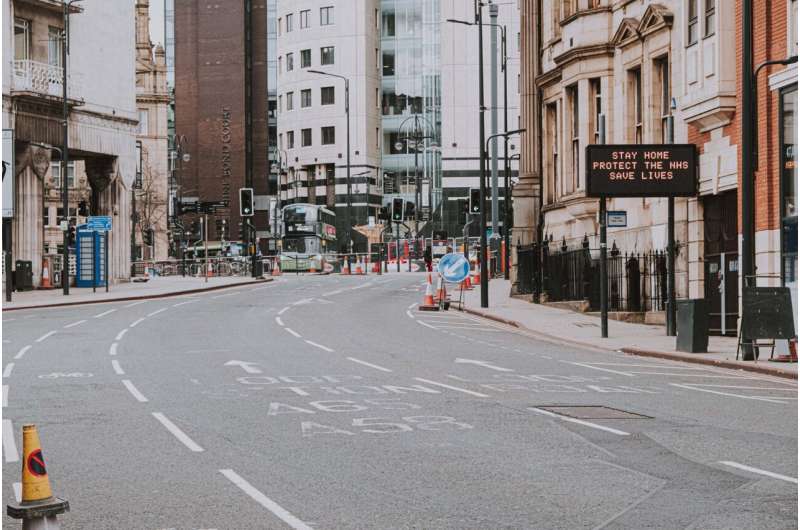This article has been reviewed according to Science X's editorial process and policies. Editors have highlighted the following attributes while ensuring the content's credibility:
fact-checked
trusted source
proofread
Students who played sports before the pandemic did better during lockdowns

A history of participating in campus recreational sports can offset stress and contribute to academic competence even during high-stress periods such as a pandemic lockdown, shows a new study.
Researchers at the University of Waterloo found that participation in activities such as fitness classes and intramural and drop-in sports before the pandemic was linked to lower levels of stress and higher levels of perceived competence to handle challenges and master school workload during the lockdown.
The study used factor and regression analyses based on self-reported responses from 116 students active in campus recreational sports at two-time points—January 2020, before the pandemic and April 2020, after lockdowns.
"Our findings suggest that the impact of campus recreational activities on reducing stress went beyond the obvious physical health benefits and contributed to overall well-being even down the line," said Steven Mock, a researcher in the department of Recreation and Leisure Studies.
"It's possible that students who had learned how to deal with challenges and losses in the context of sport and recreational activity developed key skills such as adaptability that helped them manage with pandemic-related setbacks."
At the beginning of winter 2020, stress levels for students were generally low. Managing academic demands, building new relationships and trying to achieve personal goals were the top three stressors at that time.
"Students had just come back from the holiday break, their academic workload was still low, and they were not anticipating any societal disruption such as COVID-19," said co-author Narges Abdeahad, a former Ph.D. candidate in the department of Recreation and Leisure Studies.
By April 2020, after lockdowns had begun, the overall level of stress had increased to above the midpoint, and the top stressors had changed to online delivery of quizzes and exams, the influence of the pandemic on their lives and managing academic demands.
"We also found that graduate students and, even more so, international students had very low participation in campus recreational sports pre-pandemic, which has wellness implications for these two groups of students," said Abdeahad.
"Since campus recreational sports appear to help develop lifelong skills that offset stressful events, educational institutions should consider including campus recreational sports as a strategy to enhance student mental health and well-being."
The study, "The role of past campus recreational sports participation in predicting students' stress and competence during the COVID-19 pandemic", was co-authored by Abdeahad and Mock and published in the Journal of Leisure Research.
More information: Narges Abdeahad et al, The role of past campus recreational sports participation in predicting students' stress and competence during the COVID-19 pandemic, Journal of Leisure Research (2023). DOI: 10.1080/00222216.2023.2165203
Provided by University of Waterloo





















